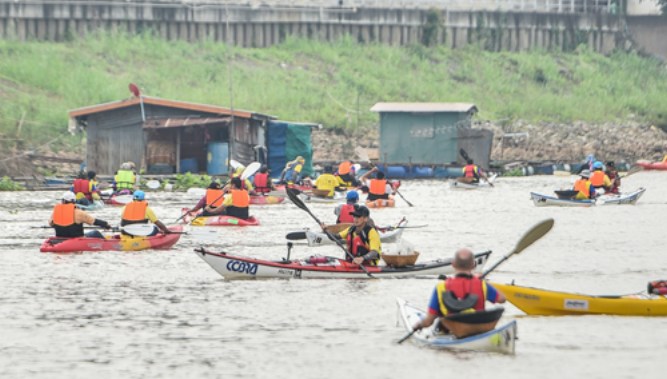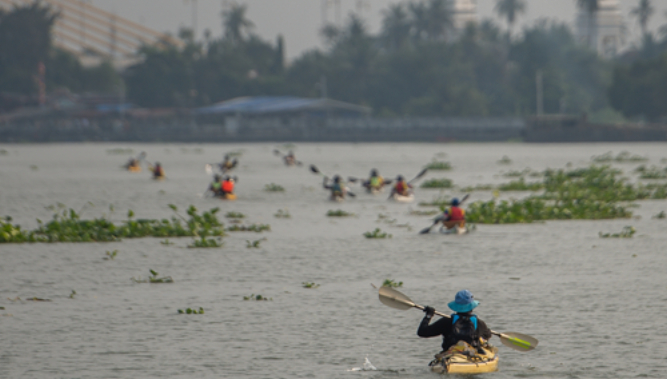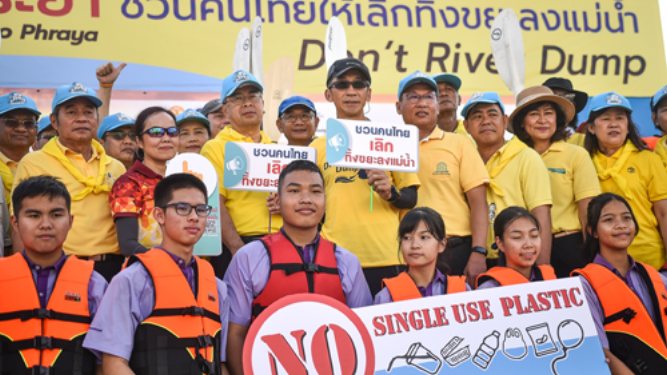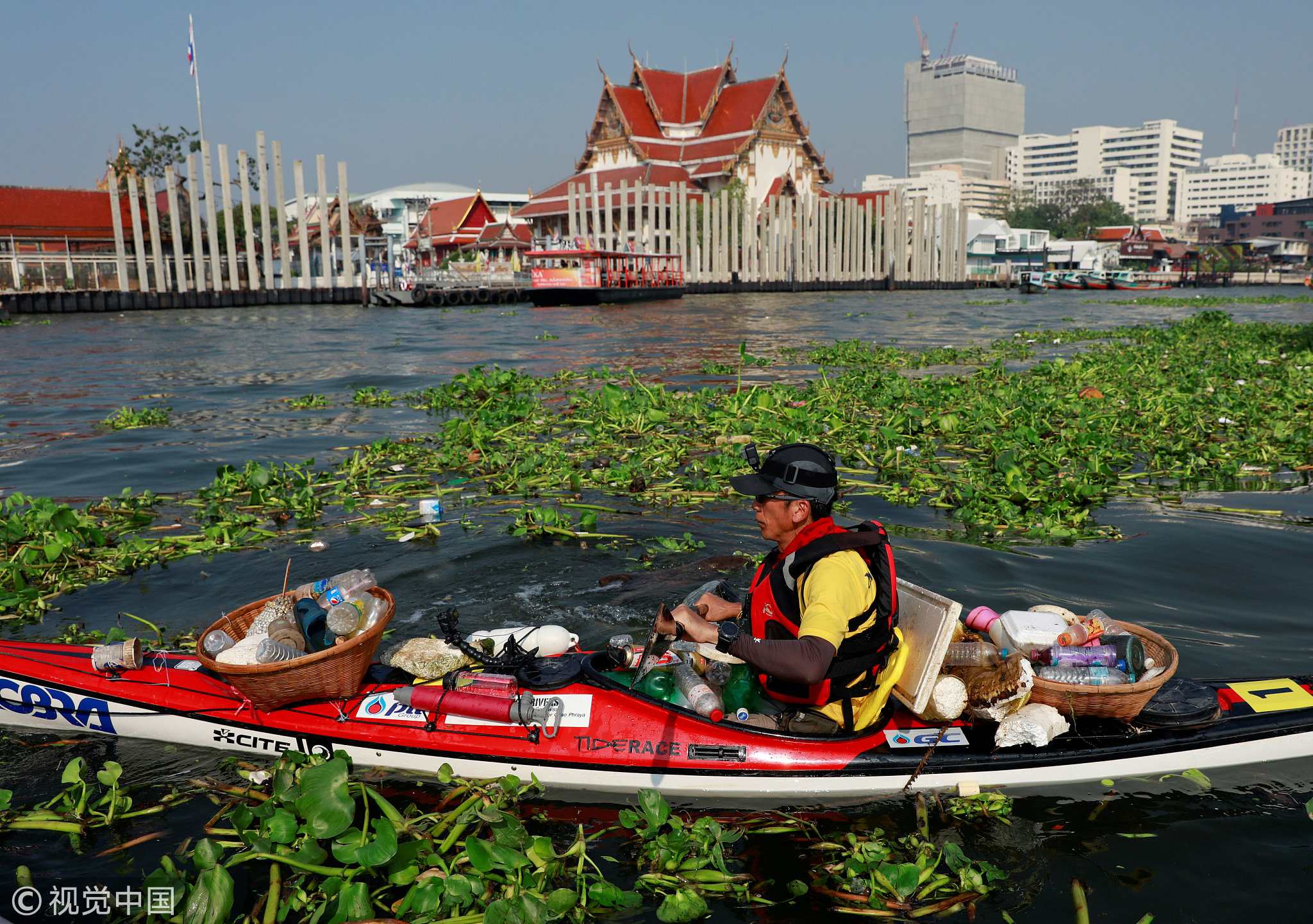
World
15:35, 22-Dec-2018
Kayakers undergo mission to collect waste from Thailand's rivers
Updated
14:56, 25-Dec-2018
By Dusita Saokaew

This is the mighty Chaophraya River, the gateway to Thailand and Bangkok's beating heart. Along the banks, it buzzes with trade and industry. Ritzy hotels and new high-rise buildings stand next to riverside housing communities on stilts.
Kayakers begin their journey where the Chaophraya begins in Nakhon Sawan and follows the river south for almost 400 kilometers from the central plains to Bangkok, then the Gulf of Thailand.

Kayakers begin their journey where the Chaophraya begins in Nakhon Sawan. /CGTN Photo
Kayakers begin their journey where the Chaophraya begins in Nakhon Sawan. /CGTN Photo
Off this river is a system of canals reflecting a more traditional Siam, a less-hurried way of life. A quieter atmosphere settles in as the nightmare begins and Bangkok's heart begins to break. But a team of kayakers and volunteers are attempting to resuscitate it again with their 14-day journey through 10 provinces where Thailand's major river flows.
Steve Vanbeea, a volunteer, says that the situation hasn't always been dire. "I went down this river 30 years ago and most of the garbage then was vegetables. We wrapped them in banana leaves. We didn't wrap it in plastic. I'm amazed where all this comes from," he says.

The "Kayak For Chaophraya" campaign aims to draw attention to Thailand's problem with plastic and increase the nation's environmental consciousness. /CGTN Photo
The "Kayak For Chaophraya" campaign aims to draw attention to Thailand's problem with plastic and increase the nation's environmental consciousness. /CGTN Photo
Groups of students, government officials, and volunteers try to collect as much waste as they can before the Chaophraya River empties its mass of floating garbage into the Gulf of Thailand.
Up to 40 kayakers spend several hours each day collecting plastic waste and buoyant materials before they end up in the open seas.
Dr. Prinya Thaewanarumitkul, Kayak Team Leader and Vice Rector of Thammasat University, says, "collecting garbage by kayaking is a tool not the destination. It's the vehicle to the destination. And the destination is not the Gulf of Thailand but changing the behavior of the people."

A volunteer rows his kayak as he collects trash in the Chaophraya River in Bangkok, December 21, 2018. /VCG Photo
A volunteer rows his kayak as he collects trash in the Chaophraya River in Bangkok, December 21, 2018. /VCG Photo
But that's easier said than done. Almost everything you can buy in this country comes in a plastic bag. Shockingly, the average Thai citizen uses eight plastic bags per day and unfortunately, most of it and other buoyant materials end up in the open seas.
Each day throughout this campaign, the kayakers spend several hours collecting trash from the river, sort them and sell them to a private recycling company before continuing on their journey.
Thailand is the world's sixth-largest contributor of ocean waste. Plastic waste in the country continues to increase at 12 percent a year. As the population continues to grow and industrialization pushes forward, the already fragile ecosystem will be under greater pressure. A fundamental change is needed, before the country drowns itself in plastic pollution.

SITEMAP
Copyright © 2018 CGTN. Beijing ICP prepared NO.16065310-3
Copyright © 2018 CGTN. Beijing ICP prepared NO.16065310-3